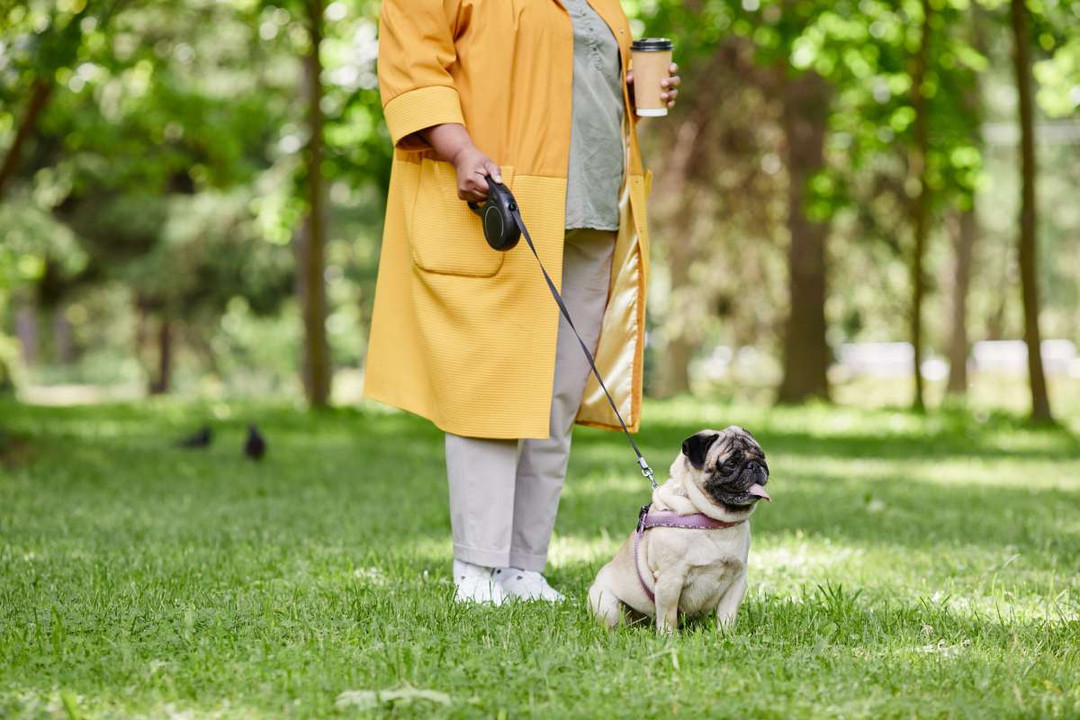Retractable Leashes: Are They Safe for Your Dog?

If you’ve considered using retractable dog leashes, we can’t blame you. They seem like a clever invention that gives your pup the freedom to engage with the scintillating scents all around them. What could be wrong with these colorful, versatile dog leads?
As it turns out, a simple leash has the power to cause big problems.
If you ask any vet or professional dog trainer, they will advise against using retractable flexi leashes. Not only can they lead to life-threatening injuries, but they encourage negative, often dangerous behaviors in your dog.
We’ve created this guide to break down the reasons why dog leashes with retractable leads are a poor choice for your pup. Plus, we’ll provide some vet-approved alternatives that will keep your furry friend safe on their next outing. Keep reading to learn why you should retract your retractable leash!
The Dangers of Retractable Dog Leashes
Universally, veterinarians loathe retractable leashes. On the human end, they cite reports of digit amputation and garrotte injuries in dog owners. They are a frequent tripping hazard. They have even been responsible for head wounds and traumatic brain injuries in some dog walkers.
Users report everything from severe burns to serious lacerations as a result of using these leashes. In essence, using a retractable leash is a liability.
More importantly, however, the leashes can also be dangerous for the dogs on the other end.
Why Retractable Leashes Are Dangerous For Dogs

Here are a few ways that retractable leashes can be dangerous for dogs:
- Injuries Related To Pulling
Even well-trained dogs occasionally pull on their leashes. When a pup pulls on a retractable leash, it can cause vertebrae displacement or neck injury. American Journal for Emergency Medicine has noted that pulling and tangling-related injuries are increasing over time.
- Malfunctioning Locks
The locking function on retractable dog leashes tends to be unreliable, allowing dogs to wander further than anticipated. This can be a problem if they encounter other dogs, wild animals, or hazards such as cars.
- Lack of Slack
Retractable leashes and dog leads do not have slack, which can condition many dogs to pull while walking. Not only can this injure the dog’s thyroid gland, it can damage the leash over time. A broken leash immediately becomes a hazard. The last thing you want is the lead to snap, allowing your dog to run away or into traffic.
- Lack of Supervision
Some retractable leashes are over 20 feet long. If you are 20 feet away from your dog, you might be too far away to stop an incident. Dogs can sometimes walk so far ahead of their owners that owners lose sight of them completely.
You might not see hazards such as bicycles, other animals, motor vehicles, or unattended food. The long lead can also cause pedestrian injuries, as described above.
Alternatives to Retractable Dog Leashes
While the length of retractable leashes is appealing, there are many safer, vet and trainer-approved leash options out there. Instead of a flexi leash, consider one of the following alternatives:
- A longlinetraining leash with slack to prevent pulling
- A waterproof dog leash with a grip to prevent hand injuries
- A Martingale leash to help correct dangerous walking behavior
- A slip leash to correct for leash pressure
- A traffic leash for high-volume urban environments
You may want to consult with your veterinarian or dog trainer before choosing a leash. We suggest that dog owners add personalization to ensure every pup is known and safely home.
Interested in more dog safety tips from the experts at dogIDs? Start with our blog on the value of personalizing your dog’s leash.
Explore Popular Articles
-
How to Pick the Best Dog Collars for Large Dogs?
Mar 12, 2025Large dogs bring a special kind of joy to any household. Whether it’s the calm, noble presence
-
What Is a Traffic Leash for Dogs?
Feb 21, 2025Picture this: you’re walking your lovable Labrador, Sammy, through a bustling city side
-
What Dog Collars Are Recommended for Saint Bernards? A Comprehensive Guide
Feb 12, 2025Saint Bernards holds a special place in the hearts of dog lovers worldwide. With their iconic




